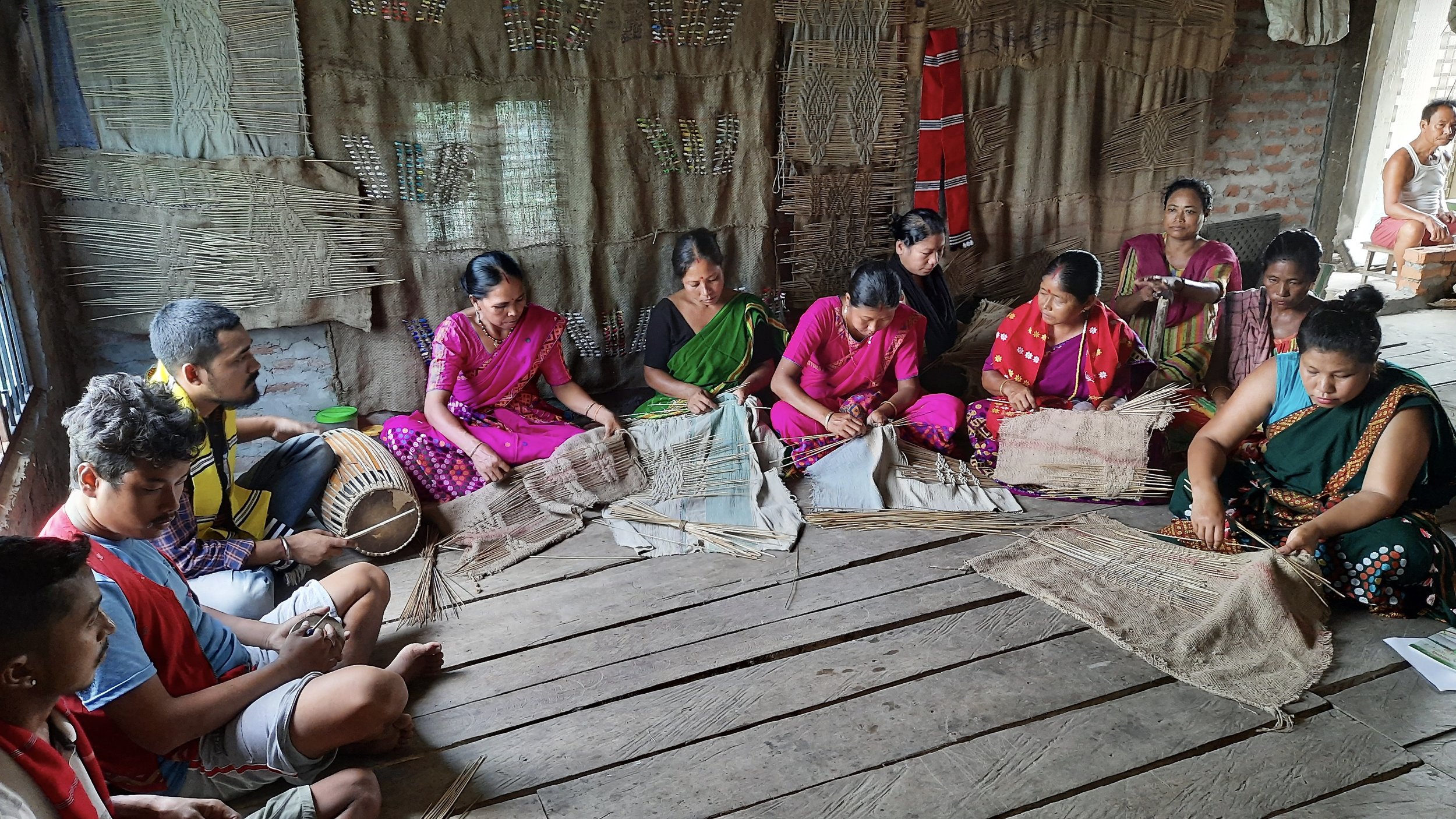Public Art Grant 2022 | Dipankar Panging
The Foundation for Indian Contemporary Art is delighted to announce that the FICA Public Art Grant 2022 is being granted to Dipankar Panging.
Dipankar Panging is an artist based out of Sivasagar, Assam. He completed his BFA and MFA from the Department of Painting, Kalabhavana, Visvabharati University, Santiniketan. Most recently, he participated in the Khoj Support Network 2020, a mentorship programme, awarded by Khoj International Artists’ Association. Over the last three years, he has been trying to engage with the issue of plastic waste as an artist and activist. Inspired by the tribal culture that he grew up with, he works to create art that draws on reusing and recycling plastic waste materials as a way of initiating critical conversations around the aesthetics of discarded material the environment, disposability and notions of waste. His practice views collaboration as a key element, and he has been working extensively to think collectively with local weaver -women in his village, developing modes of workshopping together around traditional Mishing textile recycling techniques.
This year, the jury for the grant included artists Archana Hande, Moonis Ahmad Shah and Shweta Bhattad; curator and art writer Veeranganakumari Solanki; and Vidya Shivadas, Director, FICA.
As part of his project Mimang Molai, Dipankar plans to work with the Mishing community in Assam to revisit traditional weaving techniques using up-cycled cloth to look at local crafts and their relationship to the environment. He wishes to develop workshops that can be conducted across villages and in collaboration with people to build a community practice of engaging with waste and tradition. He also intends to draw from the eco-friendly structure of Mishing houses to dialogue further in the public domain about the significance folk arts, crafts, and music.
The jury felt Dipankar’s proposal prioritised not just the community that he is a part of and engages with but it also pushes ways in which these practices grow into sustainable livelihoods for those involved. They appreciated the manner in which the project articulates a sense of non-linear time through gatherings of objects, histories, communities, cultural techniques and different methodologies of production.

